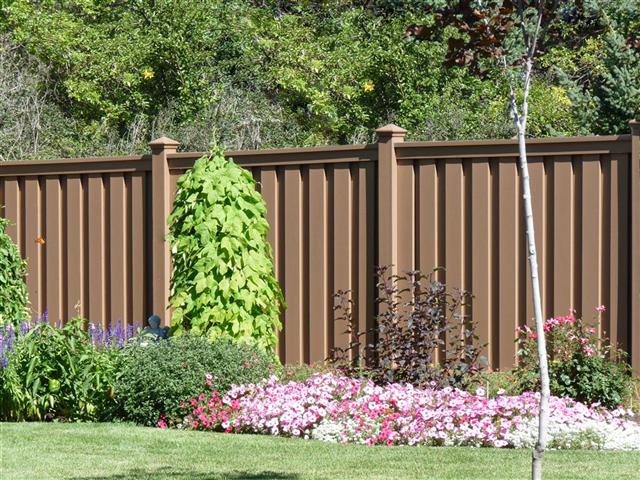All Categories
Featured

Choosing the right fence material is crucial for attaining the balance of longevity, aesthetic appeals, and performance that fits your residential property. Wood, vinyl, and aluminum are prominent choices, each with special features that satisfy specific requirements. Right here's an in-depth consider the benefits and negative aspects of these 3 materials.
Timber Fence. Pros:. Ageless Allure: Timber uses a natural, timeless appearance that enhances numerous architectural designs. Personalized: It can be repainted or tarnished in a variety of layouts and shades. Affordable: Timber fencings are frequently less costly ahead of time than plastic or aluminum. Eco-Friendly: As a sustainable source, timber is sustainable and eco-friendly when sourced sensibly. Disadvantages:. Maintenance-Intensive: Calls for routine discoloration, paint, or securing to safeguard versus climate and bugs. Much Shorter Life Expectancy: Depending on the sort of timber and environment, it normally lasts 10-15 years. Vulnerability to Damages: Prone to decomposing, bending, and termite damages without correct treatment. Timber is perfect for property owners that value aesthetics and agree to spend effort and time in upkeep to extend its life.
Plastic Secure Fencing. Pros:. Resilient: Immune to insects, rot, and weather, plastic keeps its structure in harsh conditions. Reduced Upkeep: Calls for little upkeep past occasional cleansing. Lengthy Lifespan: Vinyl can last 20-30 years without significant wear or damages. Flexible Designs: Available in numerous colors, textures, and styles, consisting of choices that mimic timber. Cons:. Costly Setup: Vinyl fencings are a lot more costly to mount compared to timber. Weak in Winter: Plastic can crack in severe chilly climates. Challenging to Fixing: If damaged, entire areas might need replacement, which can be testing to match. Vinyl fence is an excellent selection for those focusing on long life and marginal upkeep, even if it features a higher ahead of time price.

Light Weight Aluminum Fence. Pros:. Rust-Resistant: Aluminum does not rust, making it ideal for damp or wet areas. Lightweight but Solid: Deals toughness without being extremely heavy, which streamlines installation. Low Maintenance: Requires little bit greater than cleaning and periodic repainting. Longevity: Aluminum fences can last for decades without substantial degeneration. Stylish Layouts: Commonly utilized for decorative purposes, light weight aluminum adds class to any kind of home. Disadvantages:. High Initial Expense: Light weight aluminum fences are among the a lot more expensive options. Minimal Personal privacy: Frequently made with open rooms, they don't obstruct views or sound. At risk to Damages: While tough, aluminum can be nicked or curved with heavy effect. Aluminum is finest matched for those that want a durable, trendy fence and do not call for full privacy.
Making the Right Selection. Each material has its strengths and weak points:

Timber is ideal for traditional appearances and eco-conscious purchasers who don't mind upkeep. Vinyl benefits home owners looking for a weather-resistant, low-maintenance solution. Light weight aluminum is a resilient, attractive alternative for those who want elegance and longevity. Consider your top priorities-- whether it's expense, personal privacy, upkeep, or look-- and consult a secure fencing specialist to select the product that best satisfies your requirements. A well-selected fence will certainly improve your residential property for years to come.
Latest Posts
Montclare Auto Repair: A Reliable Auto Service Provider in Montclare
Published Apr 20, 25
2 min read
Chain-Link Secure Fencing: Montana Fence's Long lasting Solution to Protection
Published Apr 20, 25
1 min read
Contact Us: Call Us Today for Professional Auto Fixes & Maintenance in Montclare
Published Apr 19, 25
2 min read
More
Latest Posts
Montclare Auto Repair: A Reliable Auto Service Provider in Montclare
Published Apr 20, 25
2 min read
Chain-Link Secure Fencing: Montana Fence's Long lasting Solution to Protection
Published Apr 20, 25
1 min read
Contact Us: Call Us Today for Professional Auto Fixes & Maintenance in Montclare
Published Apr 19, 25
2 min read